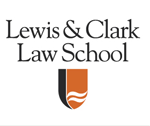Animal Law Review
First Page
5
Abstract
Contemporary research results regarding non-human animals’ intelligence, emotional life, and capacity for reciprocity strongly suggest the need for a sweeping re-evaluation of their legal status as mere property. In this essay, the author will contend that the contractarian theory of philosopher John Rawls provides an ideal basis for this re-evaluation. Rawls’ theory holds that the just rules for a given real-world society are those that would rationally be chosen behind an imaginary “veil of ignorance,” where the deciding parties are placed in an “original position” in which they have no idea of their personal qualities or the positions they will ultimately occupy in a real-world society. In the “original position,” Rawls contends, parties will metaphorically “insure against” contingencies such as being poor or disabled, by arranging society to offer a social safety-net for persons in those situations. However, what about the contingency of being a non-human animal? The author will argue that though Rawls intentionally left this contingency out, it should be included — and comments on the profound changes to current law that would result if rules devised behind Rawls’ veil of ignorance took into account the contingency that, in real-life society, parties would be not humans, but non-human animals.
Recommended Citation
Julie Hilden,
A Contractarian View of Animal Rights: Insuring Against the Possibility of Being a Non-Human Animal,
Animal L. Rev.
5
(2007).
Available at:
https://lawcommons.lclark.edu/alr/vol14/iss1/3

